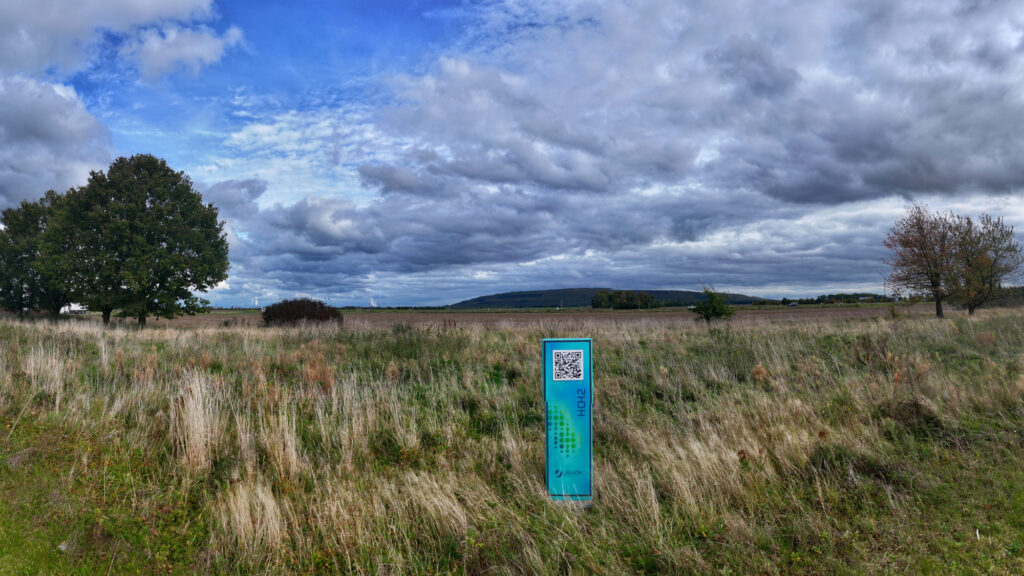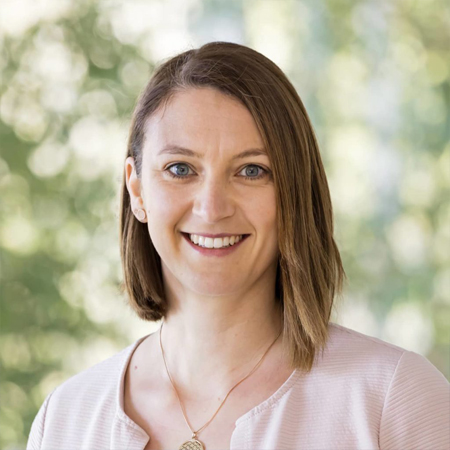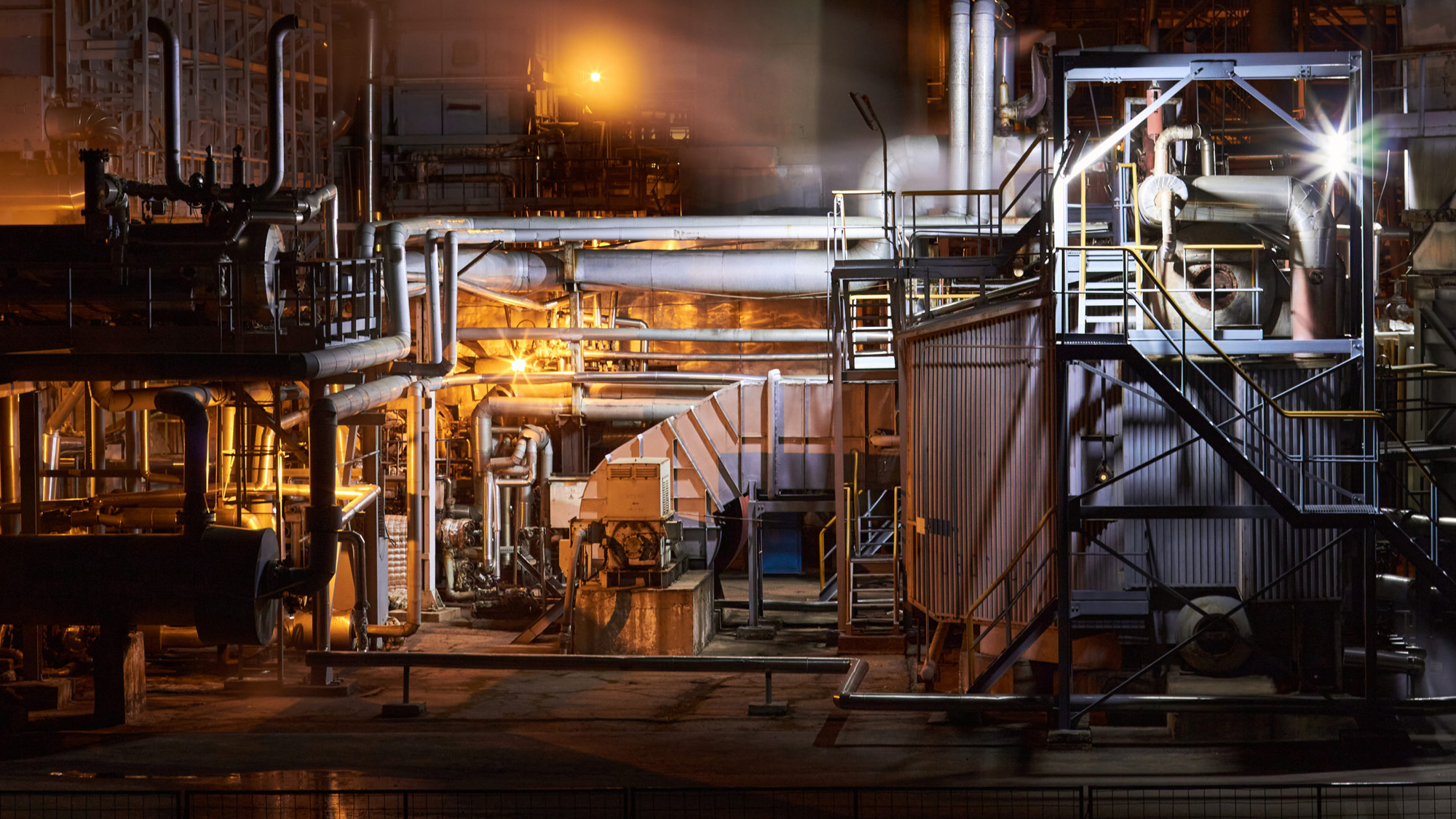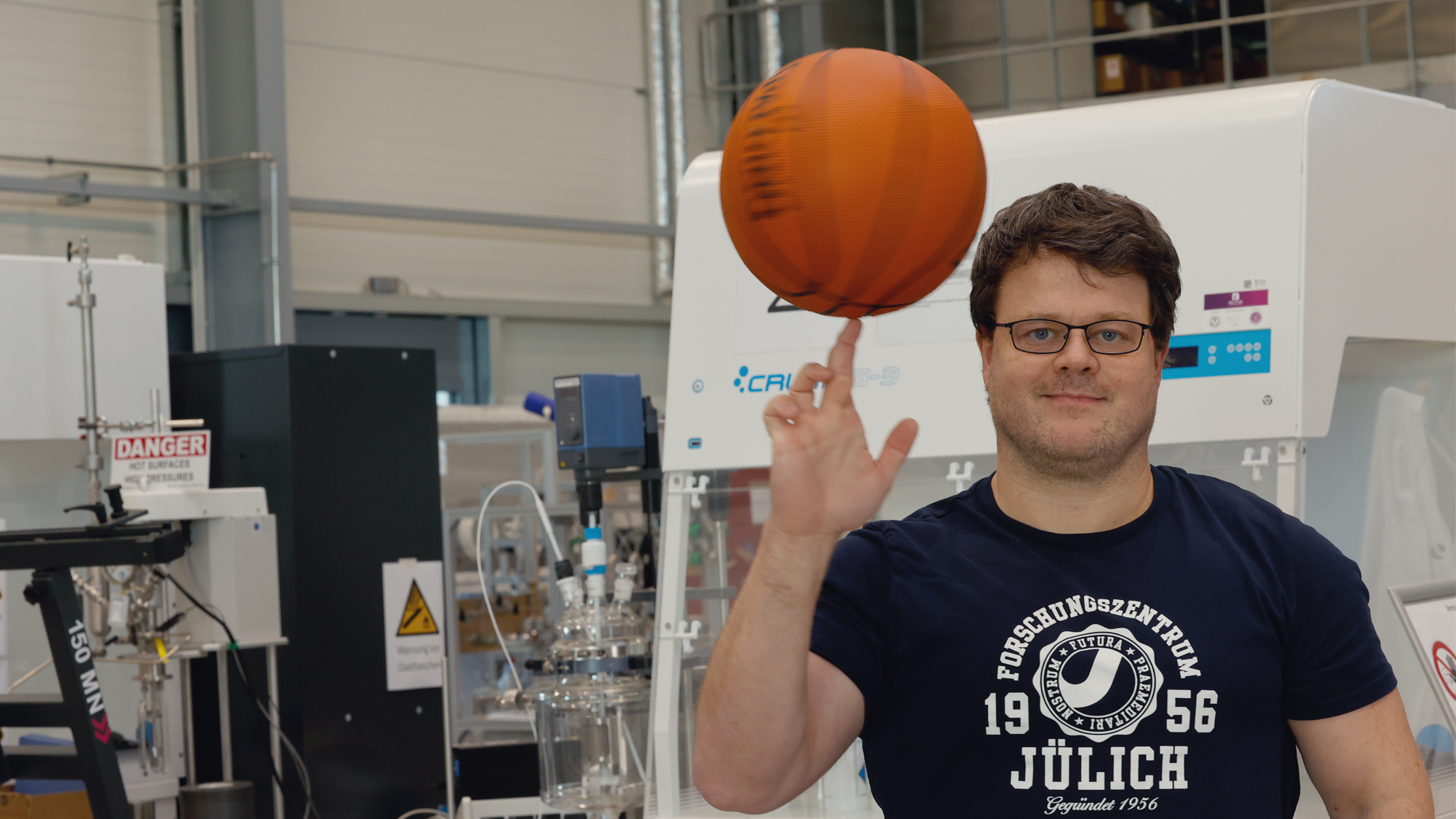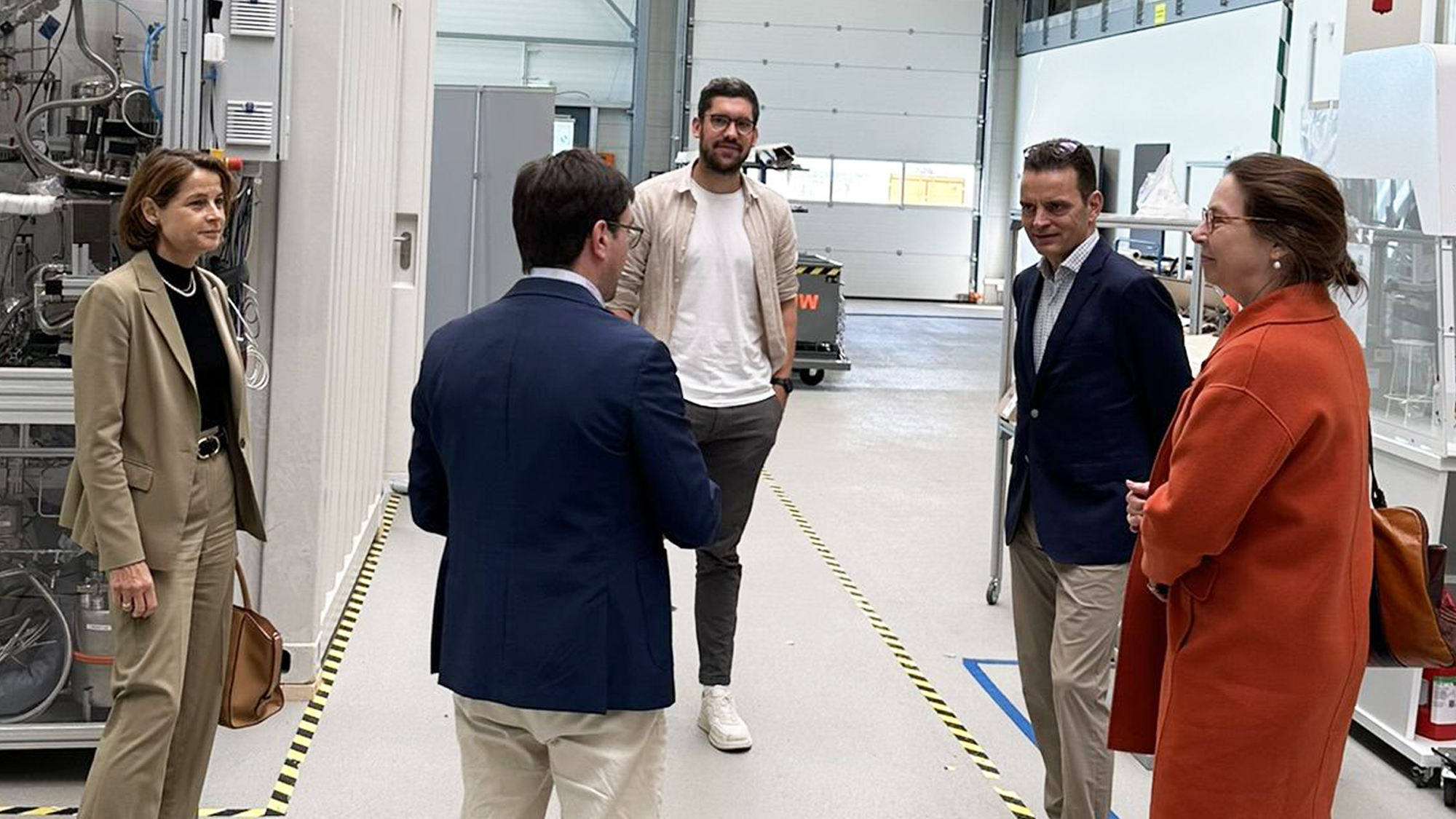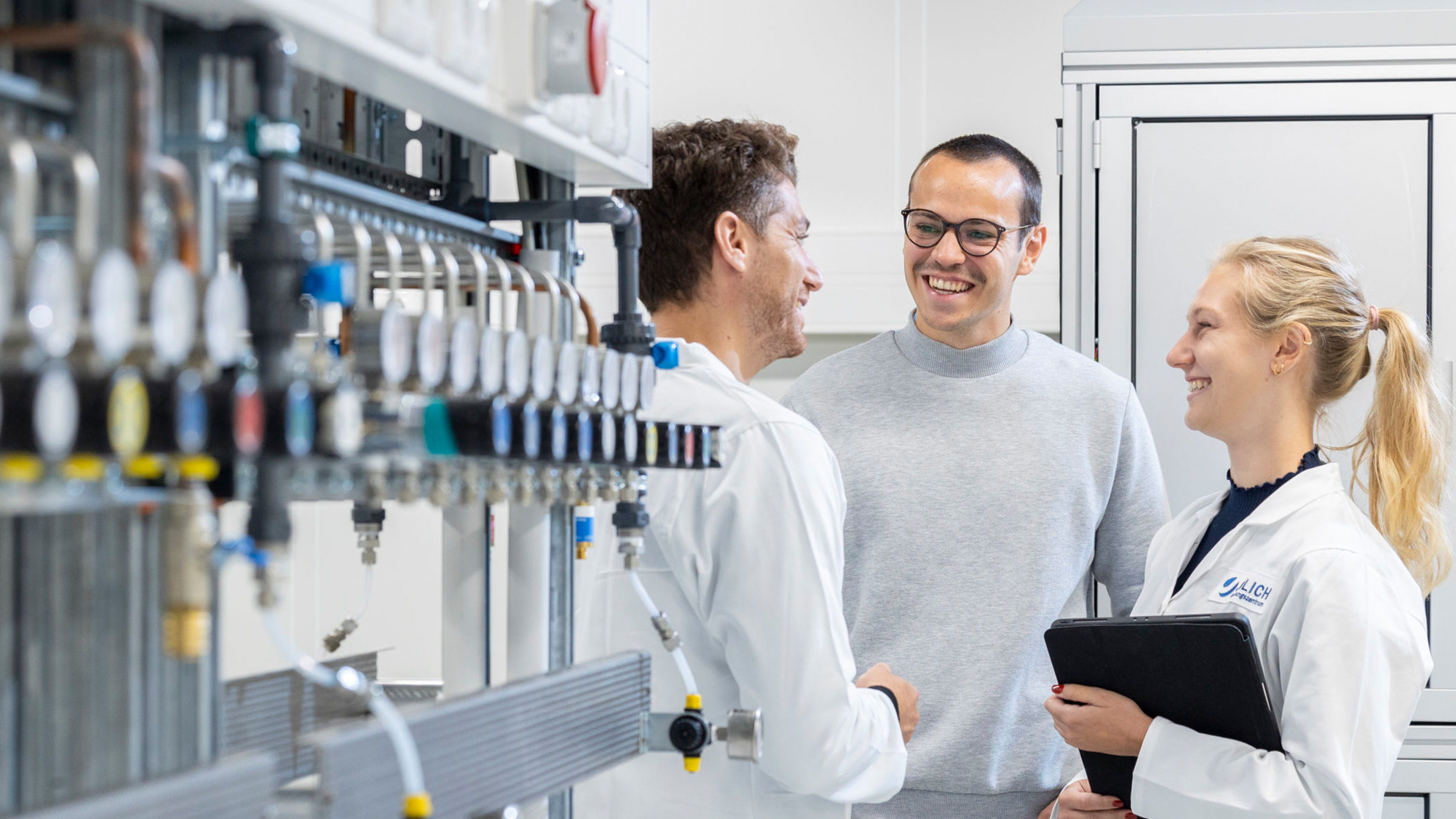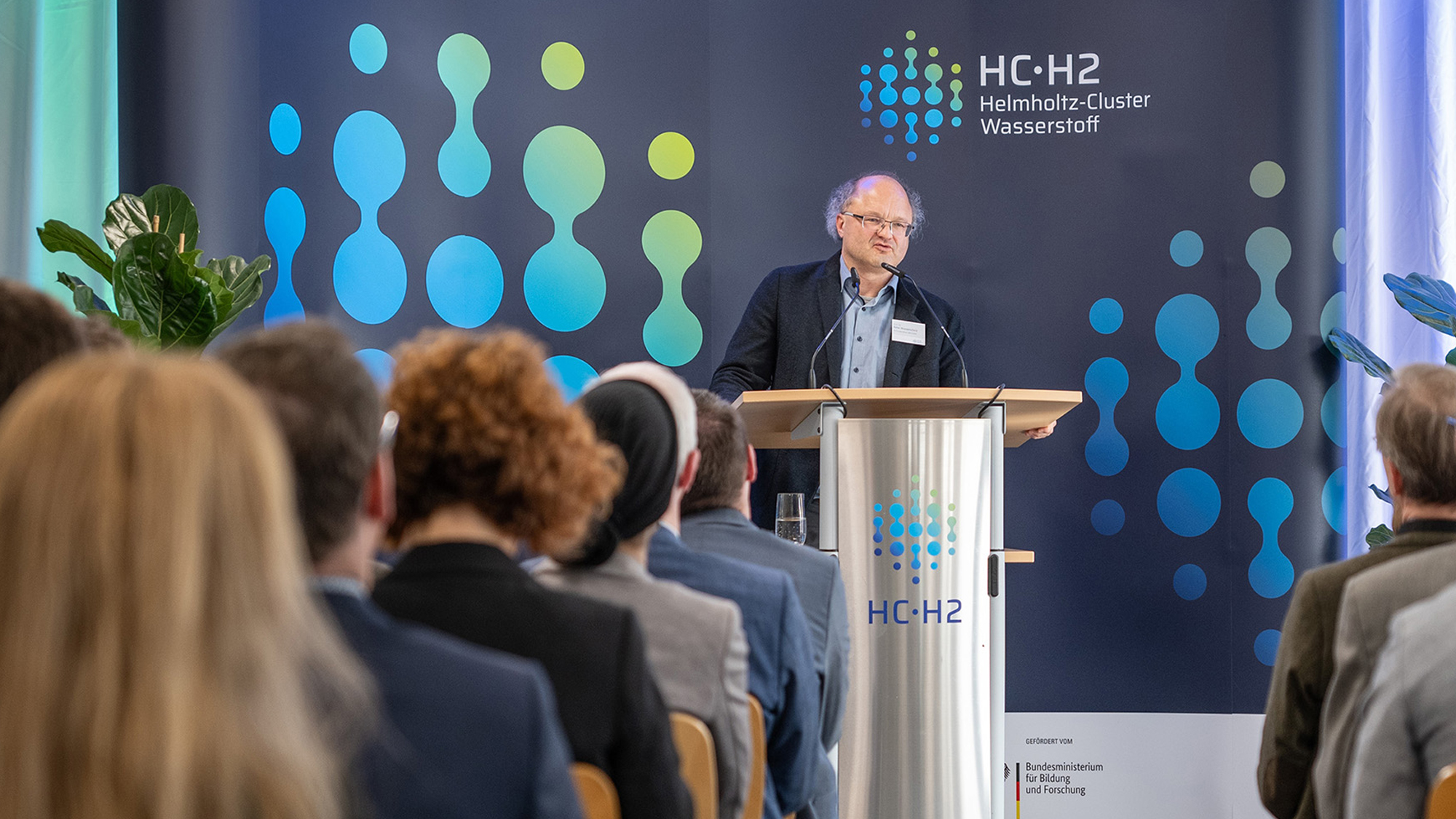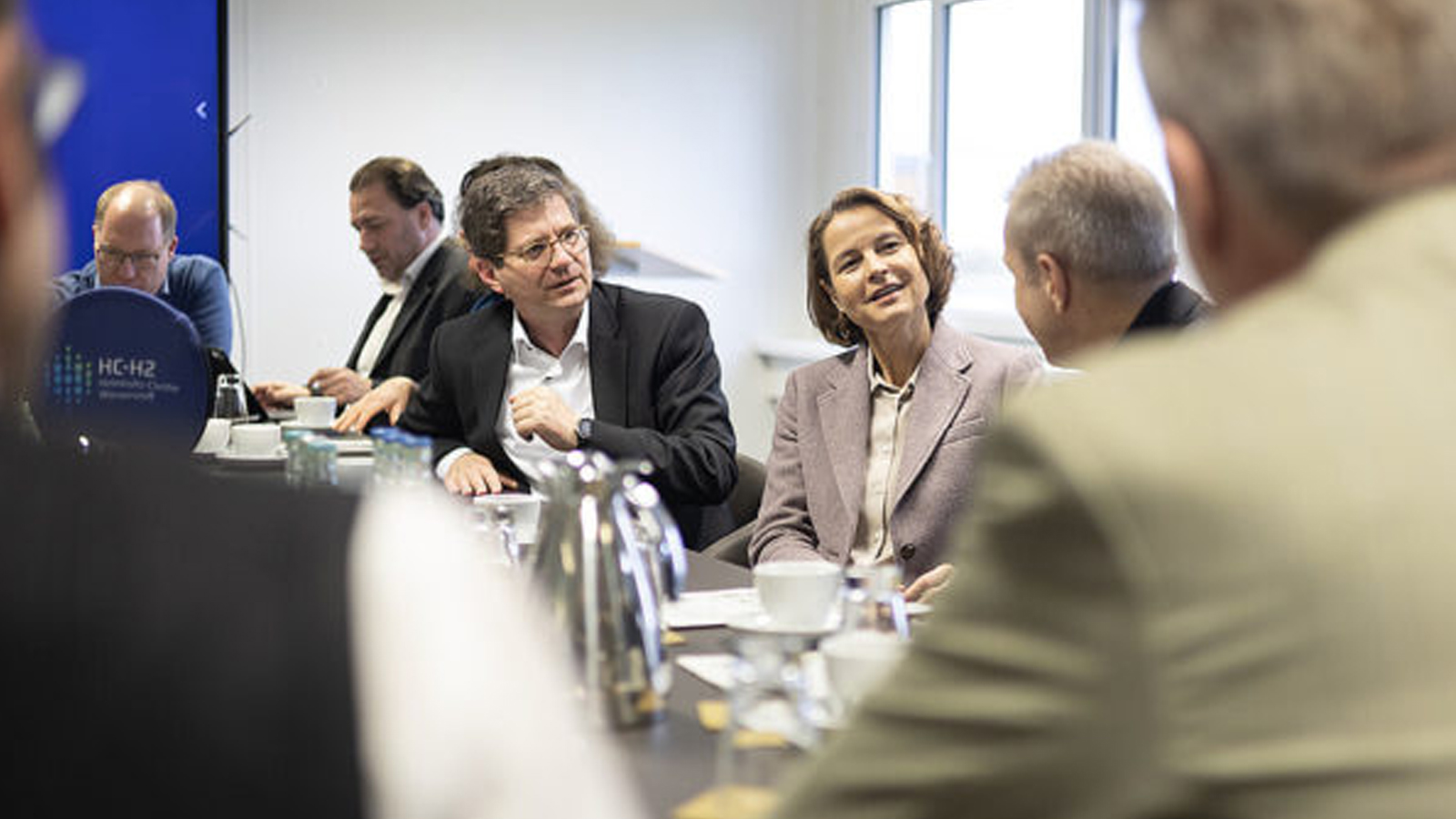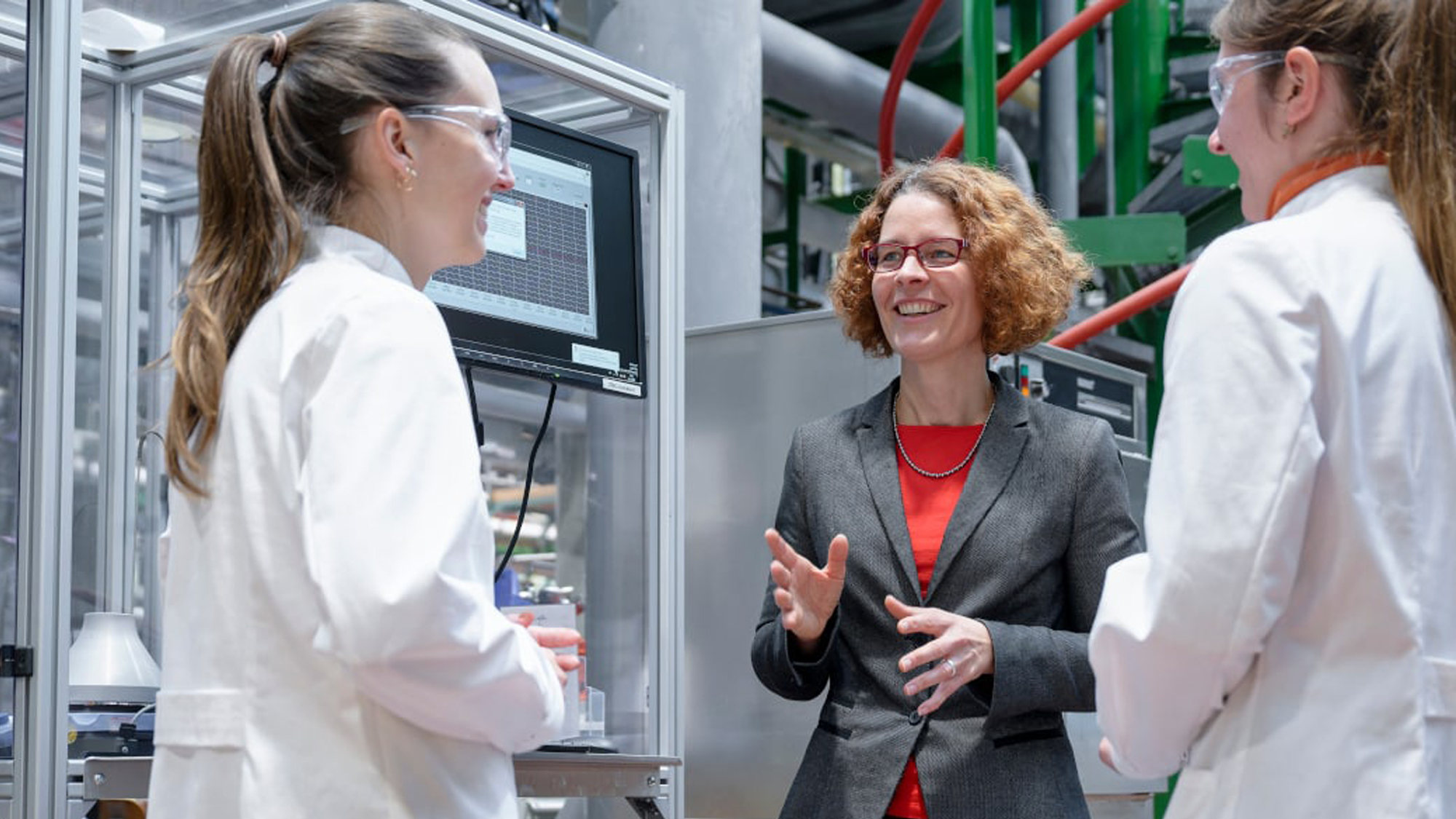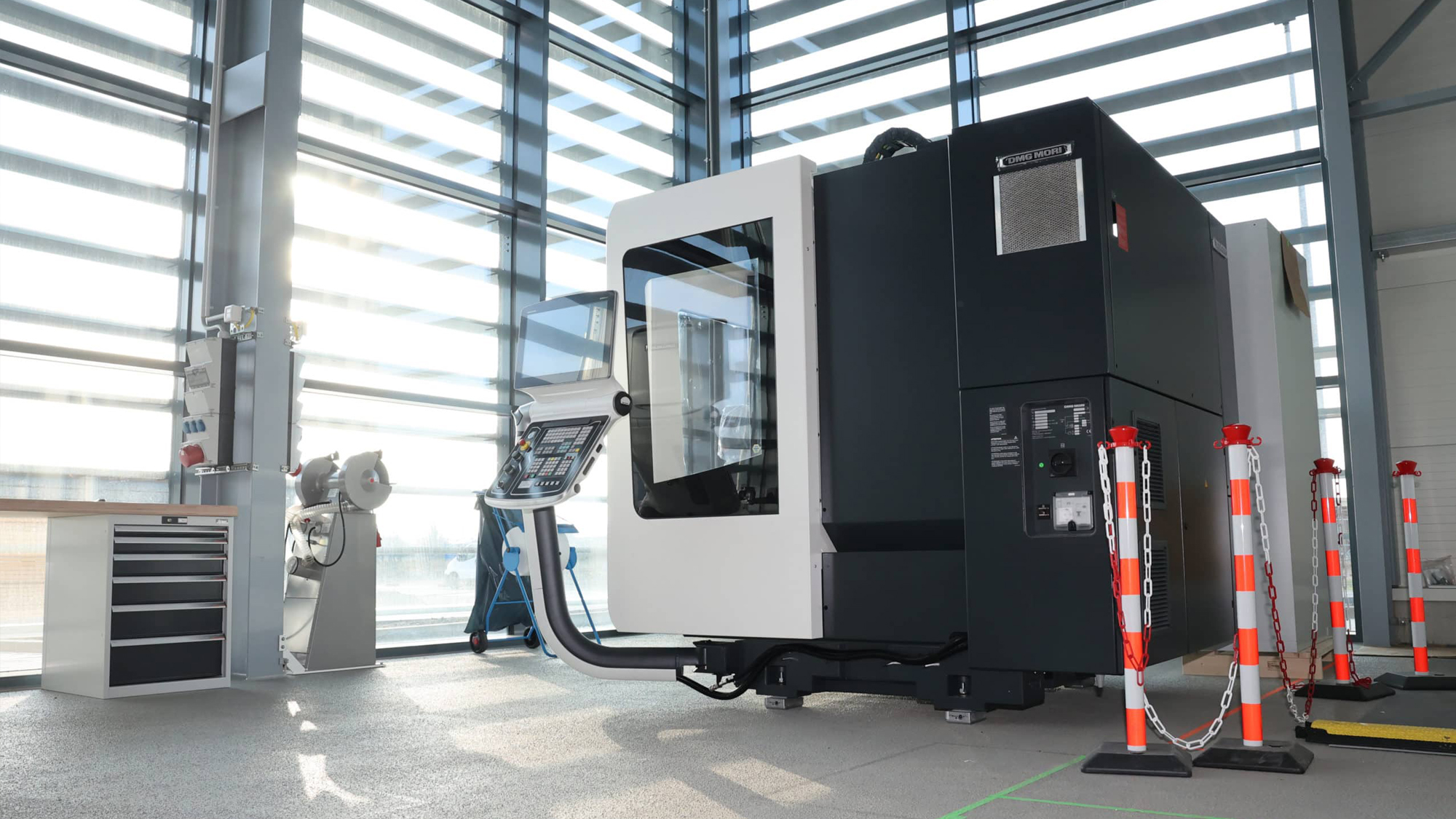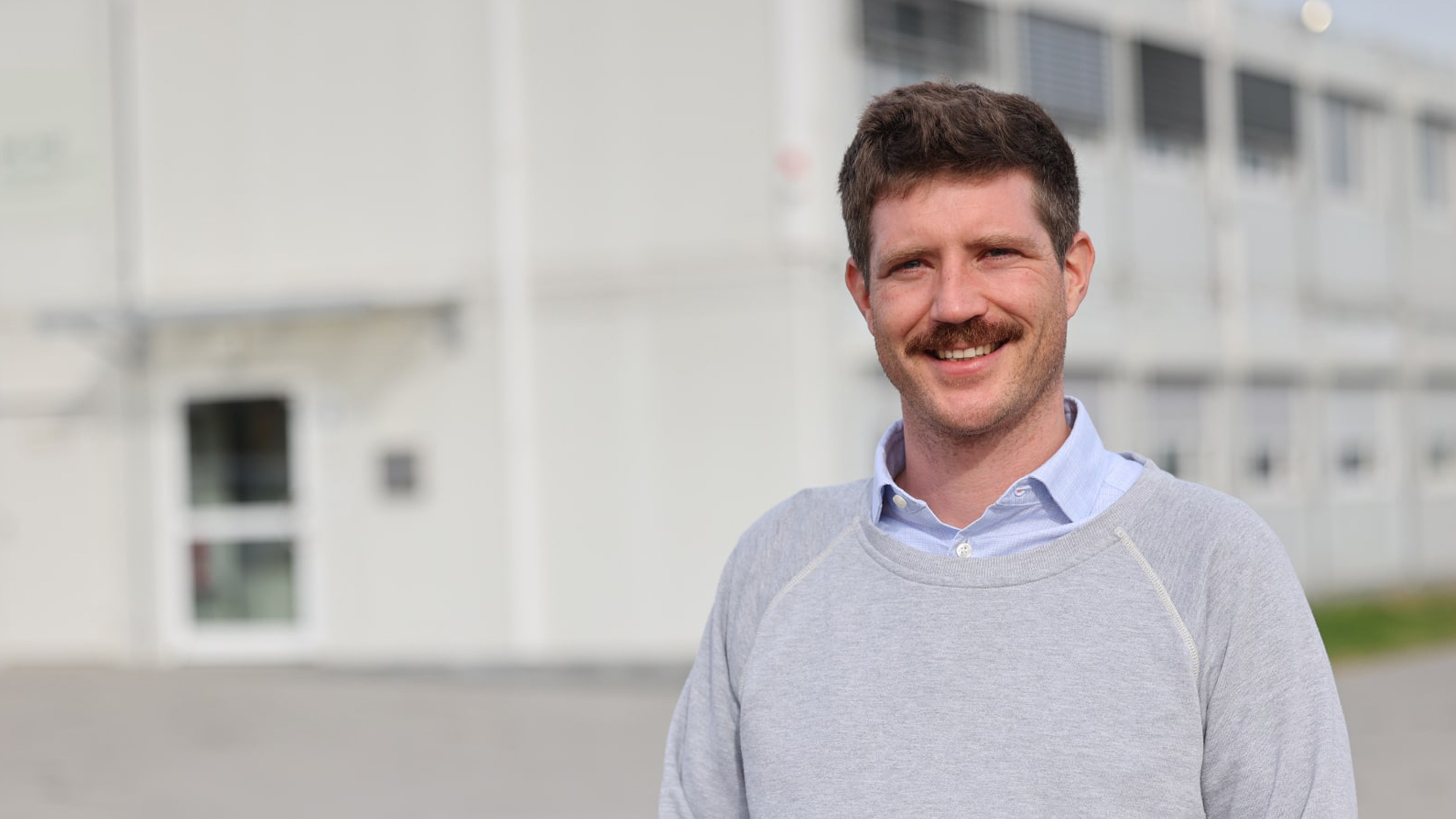The growth at Brainergy Park Jülich is becoming increasingly visible. Almost every month, excavators open a new construction site in the intermunicipal and innovative industrial park north of Jülich. The Institute for Sustainable Hydrogen Economy (INW) at Forschungszentrum Jülich is making a significant contribution to this growth. Currently, 100 people work at INW, which forms the core of the Helmholtz Hydrogen Cluster (HC-H2). This makes the Research Centre the largest employer in the park at present.
“We have achieved two further important milestones this year,” says Dr. Susanne Spörler, Head of the INW Infrastructure and Scientific Coordination Department (INW-I). Since spring, a plot of land has been available on which the INW can continue to grow in the future.
The North Rhine-Westphalia Ministry of Culture and Science has purchased the 18,930 square metre site and is making it available to Forschungszentrum Jülich on a 99-year leasehold. The site, which is more than two and a half times the size of a Bundesliga football pitch, is located directly at the entrance to the park between Landstraße 241 and the container buildings that currently house the INW.
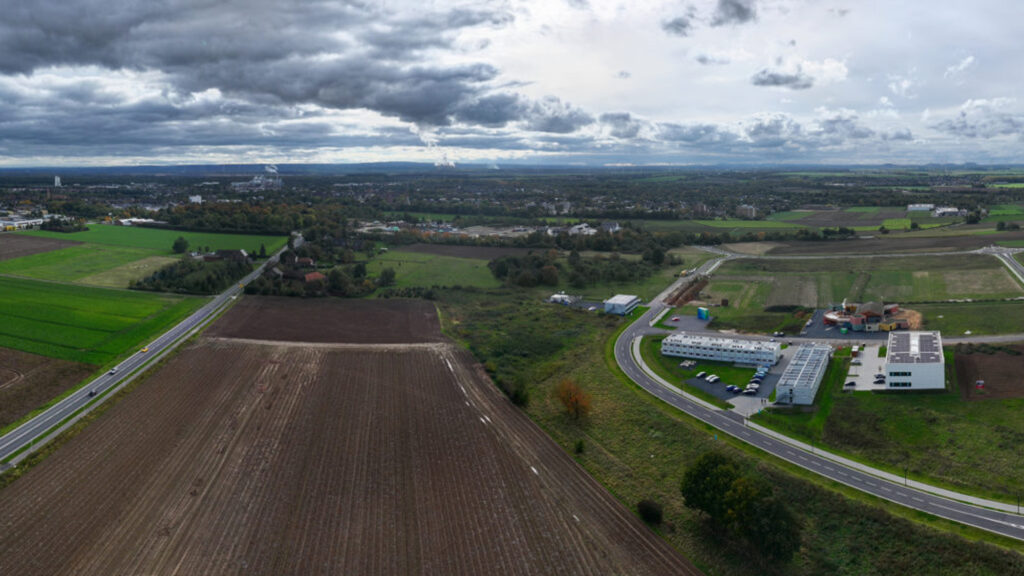
5.3 million euros for planning
Now, the INW has received important mail in the form of a grant notification from the Cologne district government. The notification promises the research centre that the planning costs for the new research building will be covered. The Jülich Research Centre will receive a total of 5.3 million euros from the funds made available by the federal government and the affected states under the Coal Regions Investment Act.
In the case of the INW, the money will be used to plan the new research building on the land that has already been purchased. At the end of the so-called service phases 1 to 3 according to HOAI (Fee Structure for Architects and Engineers), which are now financed by the grant notification, the design planning for the new INW buildings will be completed in 2026.
The INW has already done some preliminary work in this area and commissioned a feasibility study from the Aachen-based architectural firm studio bauko, which sets out the INW’s requirements.
“Even if we don’t have any visible construction activities at the moment, these two secret milestones are important for the growth of our institute and our cluster. A total of 90 million euros will be spent on modern office space, laboratories and pilot plants by 2030 or 2031, which will enable us to contribute to the success of structural change in the Rhenish mining area and the energy transition with new hydrogen technologies,” explains Susanne Spörler.
Dr. Susanne Spörler, Head of the INW-I department
The copyright for the images used on this website is held by Forschungszentrum Jülich, aligator kommunikation GmbH and
stock.adobe.com.
